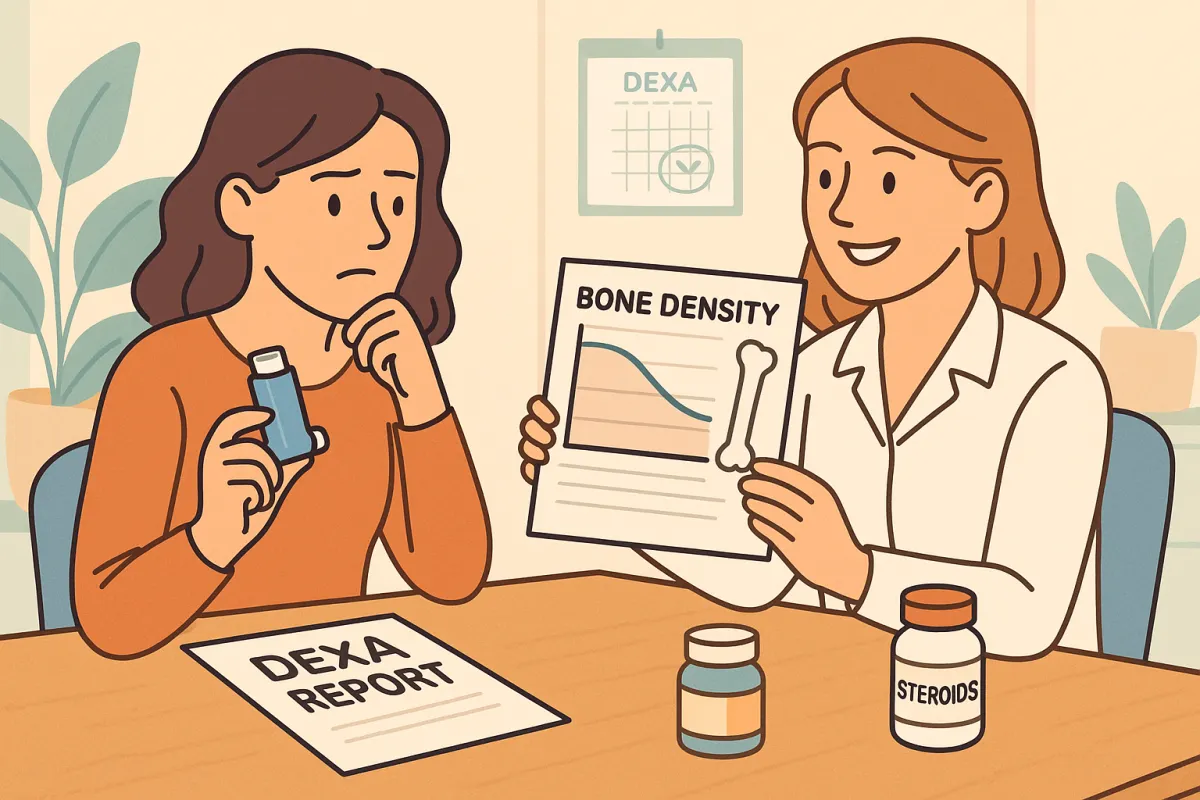
Corticosteroids: Helpful for Inflammation, Hard on Your Bones
Corticosteroids — like prednisone, cortisone, or dexamethasone — are powerful drugs often prescribed for:
Asthma and COPD
Rheumatoid arthritis or lupus
Autoimmune diseases
Skin conditions like eczema or psoriasis
Inflammatory bowel disorders
They’re excellent at calming inflammation — but they come with a hidden cost:
They can weaken your bones over time.
Why Corticosteroids Affect Bone Density
Steroids reduce inflammation by calming your immune system. But they also interfere with how your body builds and maintains bone:
They slow down osteoblasts (bone-building cells)
They increase osteoclast activity (bone breakdown)
They reduce calcium absorption
They may lower sex hormones like estrogen and testosterone
The result: your bones can lose density faster than they can rebuild — especially with ongoing use.
What Counts as “Ongoing Use”?
There’s no strict line, but the risk goes up with:
Daily oral steroids taken for several weeks or months
Repeated short-term courses over time
Long-term use of inhaled or topical steroids, especially in older adults
If you’re a long-term user — even of low-dose or inhaled steroids — it’s smart to take proactive steps to monitor and support your bone health.
What You Can Do
If steroids are part of your treatment plan, here’s how you can protect your bones:
✅ Get a DEXA scan periodically to track bone density
✅ Prioritise protein, calcium, vitamin D, and magnesium
✅ Use resistance or high-load exercise (like osteogenic loading or HiRIT) to signal your body to build bone
✅ Avoid compounding risk factors, such as smoking or excessive alcohol
✅ Do a full check-in with a tool like BoneAudit to identify other gaps
Final Thought
Being on steroids doesn’t mean your bones are doomed.
But it does mean you’ll want to be extra proactive.
Think of it like this: steroids tilt the scale toward bone loss — so you need to stack the other side with things that support bone building.
Plenty of people maintain — or even improve — their bone health while on long-term steroid treatment. The key is knowing the risks and staying one step ahead.
